Music has long been lauded as a rapid mood improver, as it boosts the brain’s production of dopamine and serotonin, aka “happy hormones.”
But now an Israeli startup is using music and its positive impact to determine potential mental deterioration in the elderly, by simply having them perform tests that involve listening to a range of musical instruments.
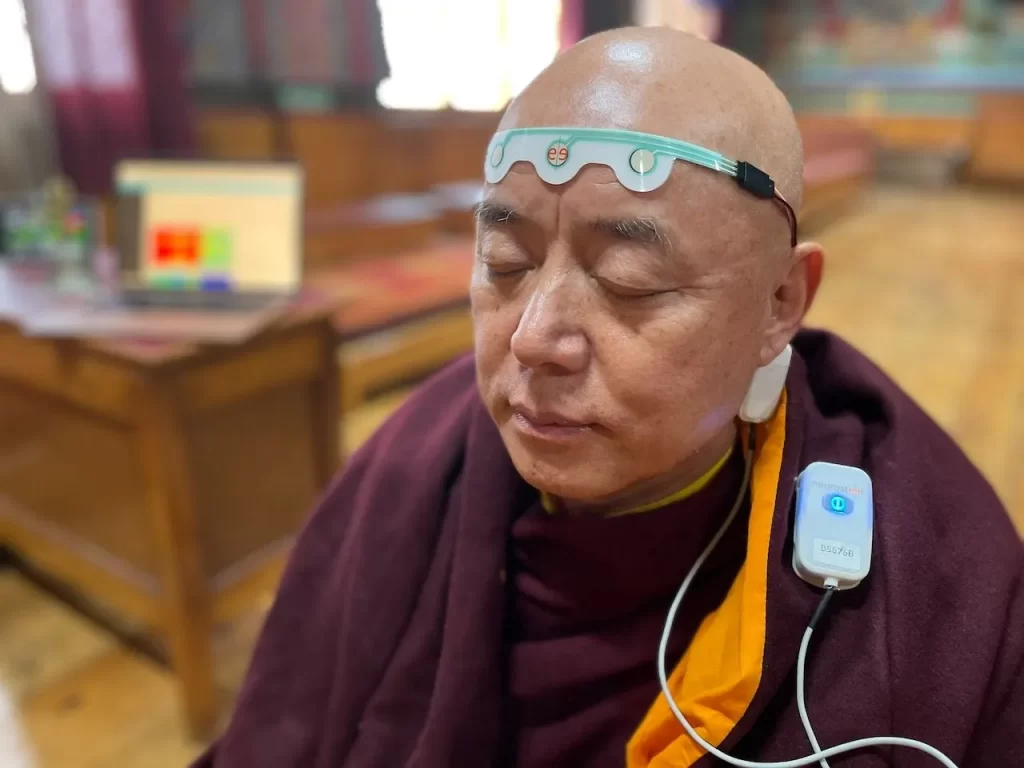
The test, which is being developed by Herzliya-based Neurosteer, will soon be submitted for clearance by the US Food and Drug Administration (FDA) for the early detection of Parkinson’s Disease as well as Alzheimer’s and other forms of dementia.
During the 15-minute examination, patients are directed to complete a series of musical tasks, such as pressing a button every time they hear a particular melody or identify a specific instrument, while sensors on their scalp record their brain activity.
The sensors are connected to a highly sensitive, pocket-sized electroencephalogram (EEG) device specially designed by the company. An EEG device is normally a stationary machine found only in medical centers, which is used to diagnose brain disorders by recording electrical activity in the brain.
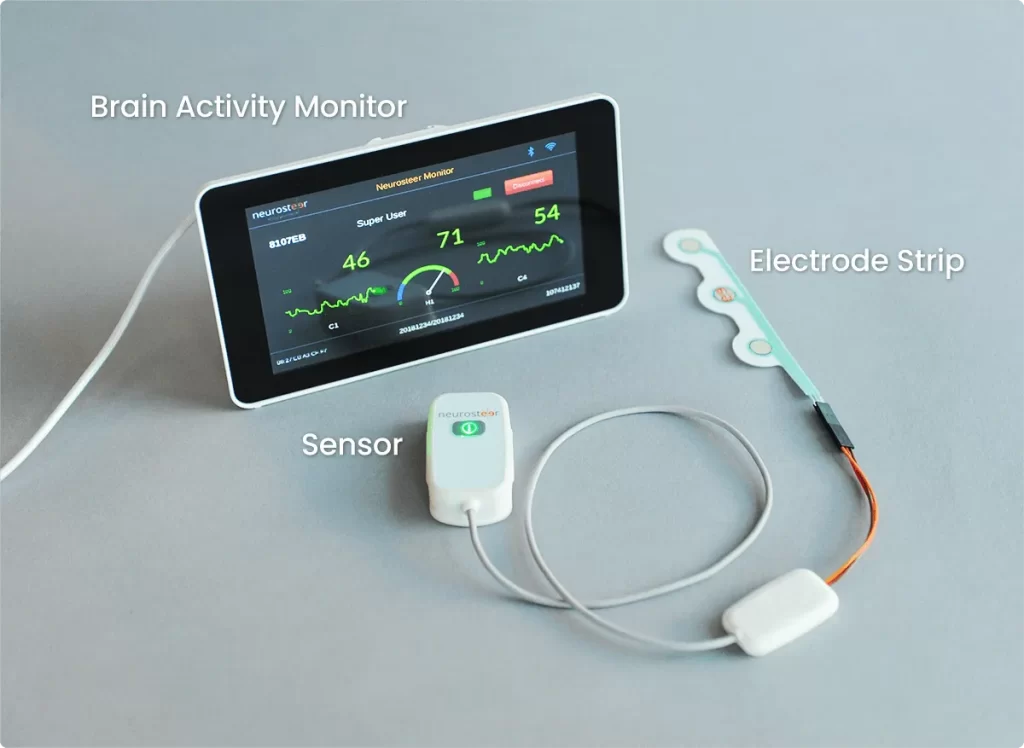
The Neurosteer device also detects electrical activity in the brain’s frontal lobe and separates it into different neural networks. It then uses proprietary AI to assess the interaction between those networks in real time, offering an insight into how well the brain is functioning. The device has already been approved by the FDA for general use.
Mood Lightener
The startup’s musical tests and AI algorithms were developed by Neta Maimon, a lecturer at Tel Aviv University (TAU) School of Psychological Sciences and the School of Music.
She says that music was chosen as a stimulus because of its impact on the brain.
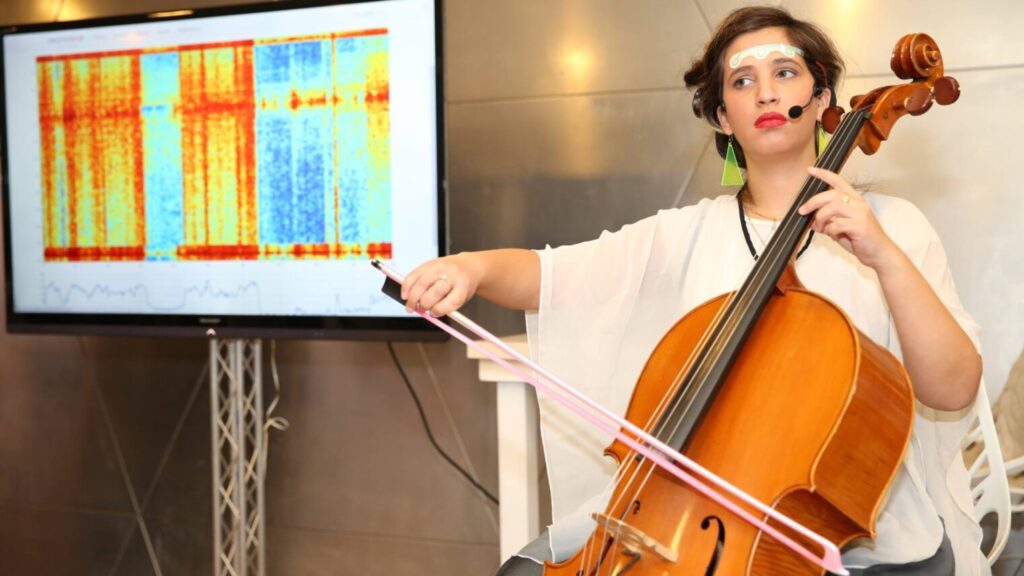
“With music, I can actually put the patient into the optimal state to conduct the tests,” Maimon tells NoCamels. “It’s a very general kind of test, and you don’t need to have musical experience to [take them].”
Multiple academic studies have shown that music improves a person’s performance while undergoing both mental and physical testing.
And given the widely accepted principle that music can improve your mood, the startup hypothesized that music-based tasks could test people in an enjoyable and performance-enhancing environment.
Neurosteer founder and CEO Nathan Intrator, a former professor at TAU School of Computer Sciences, tells NoCamels that music activates the brain so strongly that it can produce almost the same amount of endorphins as produced when carrying out energetic exercise such as running.
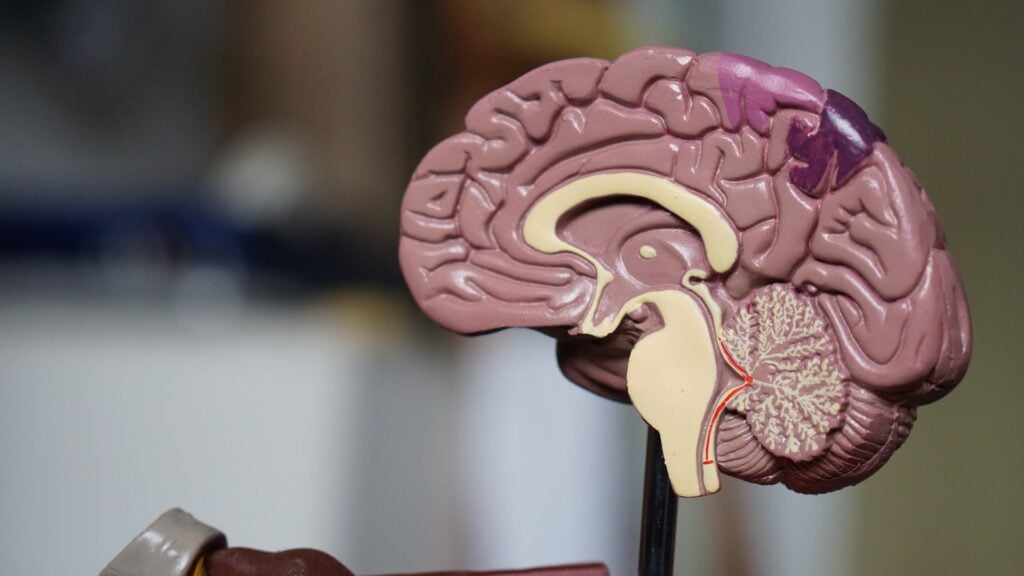
“This enables us to interpret the brain. We induce a certain condition using music, and then look for the response,” he says.
Brain Business
Neurosteer says that its unique EEG device offers numerous advantages over a traditional brain scan.
The traditional device is limited in both diagnosis capability and in patient accessibility. Not only is it restricted to use in laboratories, clinics or universities, it also requires the patient to place up to 256 electrodes onto their scalp and remain still for an extended period.
Sign up for our free weekly newsletter
SubscribeFurthermore, EEG recordings must be interpreted by qualified specialists, who will then send the results to the doctor who ordered the test. This can potentially lead to weeks of waiting for the patient.
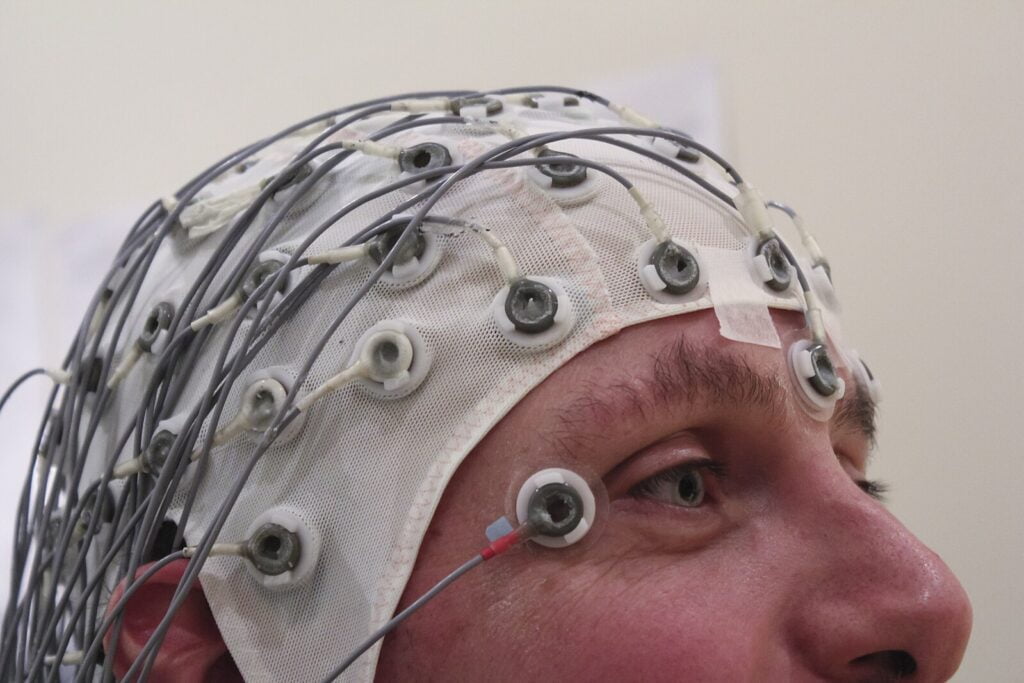
On the other hand, Neurosteer’s portable device can be operated not just in a clinic, but also in residential facilities. It also has only three electrodes in the adhesive strip placed on the head.
Unlike Neurosteer’s musical challenge, practical tests of cognitive capabilities (thinking, communication, understanding and memory) commonly focus on correctly identifying the day, month and year; writing a brief, grammatically correct sentence; and memorizing a few objects to be repeated back a short time later.
But, says Intrator, the outcome of these practical tests can actually be swayed by the environment. If the person carrying out the test is ill-tempered or does not connect well with the patient, for example, the results can be adversely affected.
This, he explains, is one reason why Neurosteer uses AI and not a person to oversee the outcome of the test. The use of AI also means that the results can be processed and presented in real time.

Intrator established the startup to address the unmet need of a more efficient and less cumbersome way to interpret brain activity than the traditional EEG.
“My colleagues thought I was crazy, because I was trying to reduce the number of electrodes [in the EEG],” he recalls. “But I realized that I had to try.”
After several years of development at Tel Aviv University, he founded Neurosteer in 2015.
The startup has raised $8 million thus far, mostly from investors who Intrator says share his devotion to his work.
In 2022, Neurosteer won the Alzheimer’s Innovation Challenge, a competition launched by multinational healthcare company Roche and Israel’s Start-Up Nation Central to find effective and innovative solutions for patients suffering from this form of dementia.
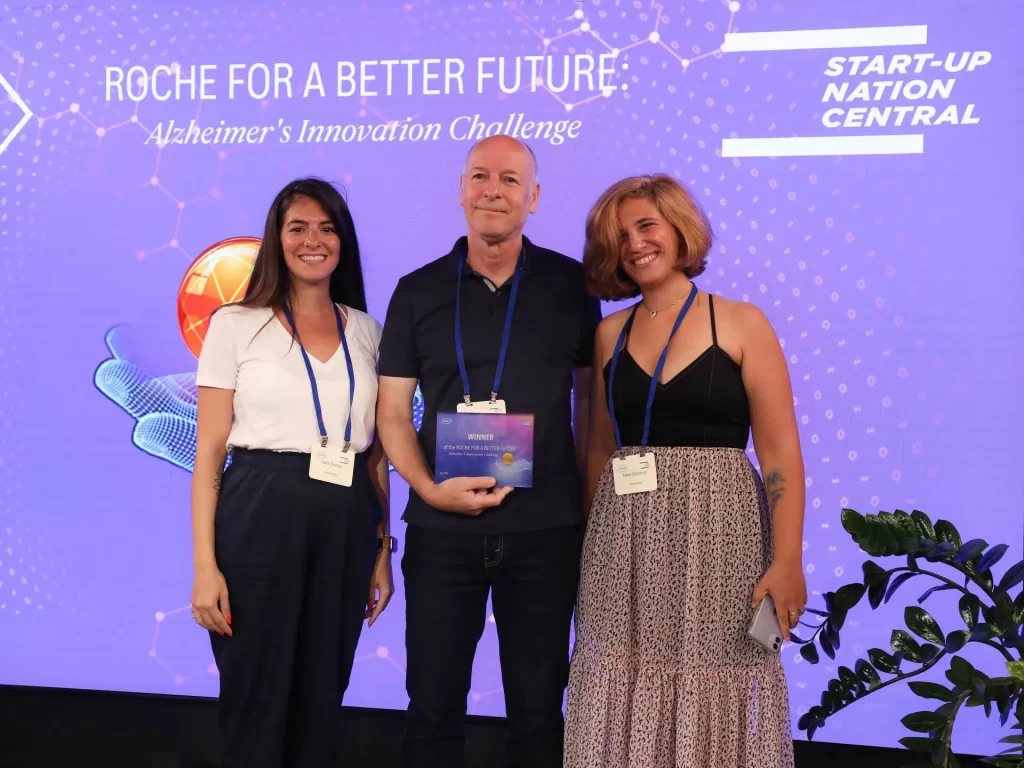
The brain sensing technology is currently being evaluated in several clinics in the US and in Israel.
Intrator envisions a situation in which brain activity is monitored by a GP in an annual checkup along with blood pressure, heart function and weight.
“I want someone to take a 15-minute test, and know at the end of it whether they are at high risk of Parkinson’s, Alzheimer’s or other diseases, all before the person even knows that there’s a problem,” he says.
Related posts

Editors’ & Readers’ Choice: 10 Favorite NoCamels Articles

Forward Facing: What Does The Future Hold For Israeli High-Tech?

Impact Innovation: Israeli Startups That Could Shape Our Future


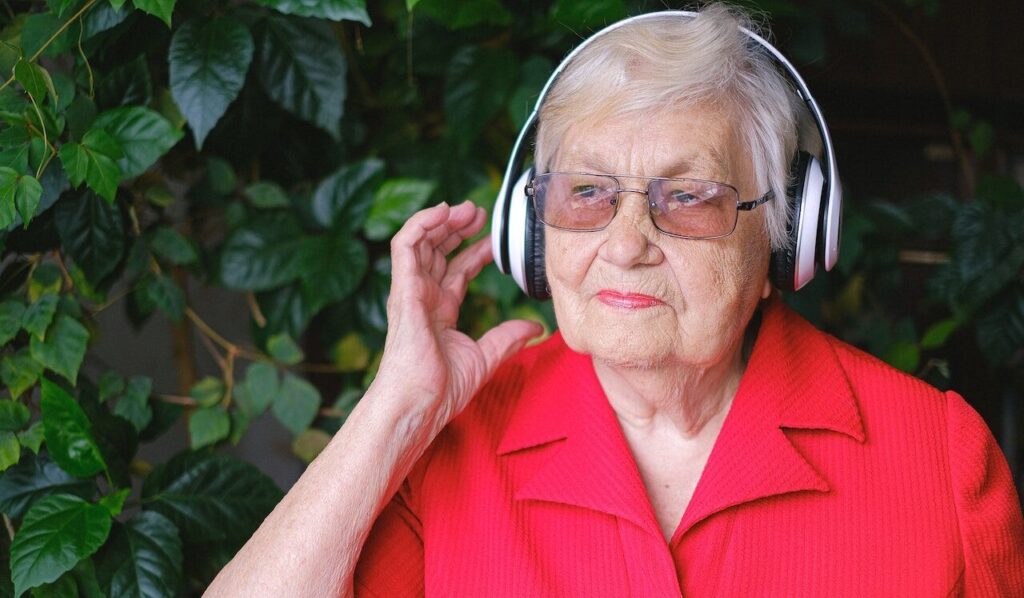

Facebook comments